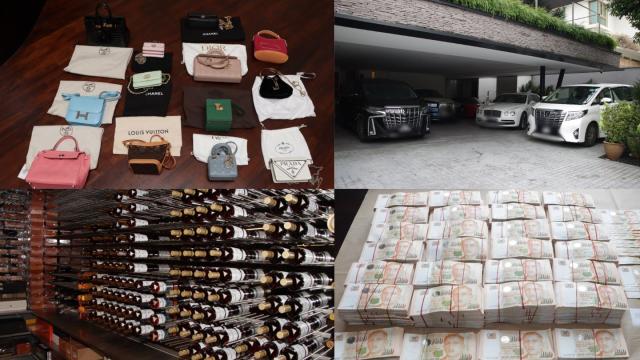Singapore is leading finance regulatory reform after a S$2.8 billion money-laundering scandal. This situation is being addressed by the government by expanding anti-money laundering restrictions to luxury assets and scrutinizing single family offices. This comprehensive approach seeks to repair the scandal’s damage and strengthen Singapore’s financial hub status.
Applying Anti-Money Laundering to Luxury Assets
Interestingly, Singapore’s reaction considers extending anti-money laundering requirements to unregulated high-value assets. Luxury automobiles, purses, and booze, which have not been thoroughly vetted, are now under official investigation. These objects have operated in a regulatory blind spot, potentially encouraging illicit financial transfers, unlike valuable stones or metals.
The planned extension of anti-money laundering restrictions to these high-value assets shows Singapore’s commitment to eliminating regulatory gaps that money launderers exploit. The government hopes to strengthen its framework to prevent illicit financial activity with luxury assets by requiring strict know-your-customer due diligence investigations.
Single-family offices: stricter rules
In its complete revamp, the government is focusing on single family offices, which have nearly tripled in registration from 2020 to 2022 to more than 1,000 offices. Rich families’ wealth management offices have been spared from licensing requirements. After the money-laundering affair, Singapore may strengthen these entities’ regulations.
Singapore’s regulatory approach may change if single family offices are regulated more strictly. These offices are vital to manage wealthy families’ finances, but the government wants to prevent their misuse for criminal financial activity. This regulatory evolution focuses on balancing legitimate wealth management with money laundering.
Avoiding Knee-Jerk Reactions: Balancing Regulation and Business
Given the gravity of the situation, the government has warned against “knee-jerk” measures that could hurt Singapore’s business environment. The government recognizes the difficulty of balancing regulatory reform and business climate. Singapore, known for its efficiency and business-friendliness, wants to make sure regulatory changes don’t dissuade genuine enterprises or hurt the economy.
Singapore’s admonition against hasty decisions underscores its proactive regulatory approach to avoid unforeseen repercussions that could damage its global financial hub status. The government’s cautious approach shows its commitment to a strong, business-friendly regulatory environment.
Growing Luxury Assets Seizures: Proactively
Since the money-laundering scandal broke, the value of assets seized or blocked has nearly tripled. Luxury assets, like cars, fancy watches, purses, costly wine, cash, and gold bars were seized to disrupt the unlawful financial network. Authorities’ proactive asset seizure expansion shows a commitment to destroying money laundering infrastructure.
This increase in asset seizures recovers illicitly obtained money and deters future offenders. Authorities are sending a message that justice and financial integrity will be pursued through all means by targeting a wide range of assets.
Public Outrage and Regulation
The money-laundering scandal with luxury assets has increased public pressure on Singapore to combat illegal finance. Despite Singapore’s strict financial restrictions, the organization, suspected of laundering money from offshore criminal activity and forgery, operated for a long time.
In addition to correcting regulatory gaps, the government will investigate the systemic faults that permitted such illegal activity to continue. Foreign and local banks, property agencies, precious metals merchants, and luxury golf clubs, they all will regulated.
Interministerial Committee to Strengthen Anti-Money Laundering
Second minister for finance Indranee Rajah will lead an interministerial committee to combat money laundering. This group will assess current legislation, suggest improvements, and strengthen Singapore’s anti-money laundering regime.
This proactive strategy supports Singapore’s international standards and best practices. Interministerial committees coordinate government efforts to combat money laundering holistically and effectively.
Looking Closer at Immigration Verification, Luxury Assets, and Wealth Inflows
The government is also considering strengthening immigration verification and applying due diligence regulations to luxury assets goods transactions. Since the coronavirus pandemic, China has sent wealth and people to Singapore.
Singapore’s immigration verification process shows its commitment to efficient and regulatory-compliant wealth and person management. Managing legal wealth migration and illicit financial activity demands a delicate balance, which the government is dedicated to.
Financial Community Impact: Waiting Periods and Due Diligence
The money-laundering case has affected Singapore’s financial community. Wealth managers and other advisers claim increased wait times for foreign passport clients, especially from China, to open private banking accounts. Waiting periods have increased from one to four months.
Financial institutions increased due diligence after the money-laundering incident, extending waiting periods. Even when legitimate clients are temporarily inconvenienced, the enhanced examination shows a commitment to thorough financial transaction authenticity assessments.
Reviewing Family Office Incentives: Transparency
The investigations have raised questions about whether any of the accused received government family office incentives. Since they do not manage third-party funds, rich mainland Chinese single family offices are immune from licensing.
The Monetary Authority of Singapore is reviewing its internal incentive administration methods to find loopholes. This study strives to ensure that family office scheme incentives are clear and in line with Singapore’s regulatory framework.
Conclusion: A Comprehensive Financial Integrity Strategy
Finally, Singapore’s response to the money-laundering with luxury assets, shows its dedication to financial integrity and regulation. A comprehensive strategy includes anti-money laundering procedures, inspection of single family offices, warning against knee-jerk reactions, extended asset seizures, and an interministerial council.
Singapore remains committed to becoming a secure, legal financial hub as it navigates the difficult regulatory landscape. Singapore leads the global fight against money laundering due to its balanced approach, which balances regulation and business-friendly policies.

